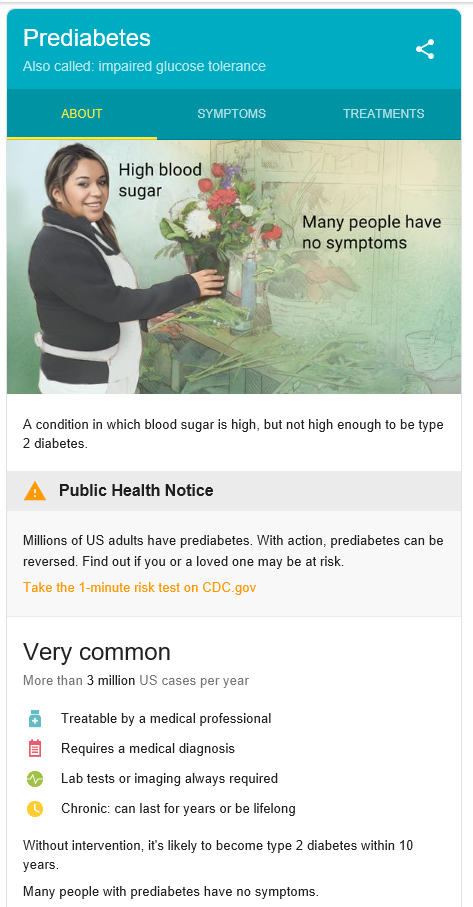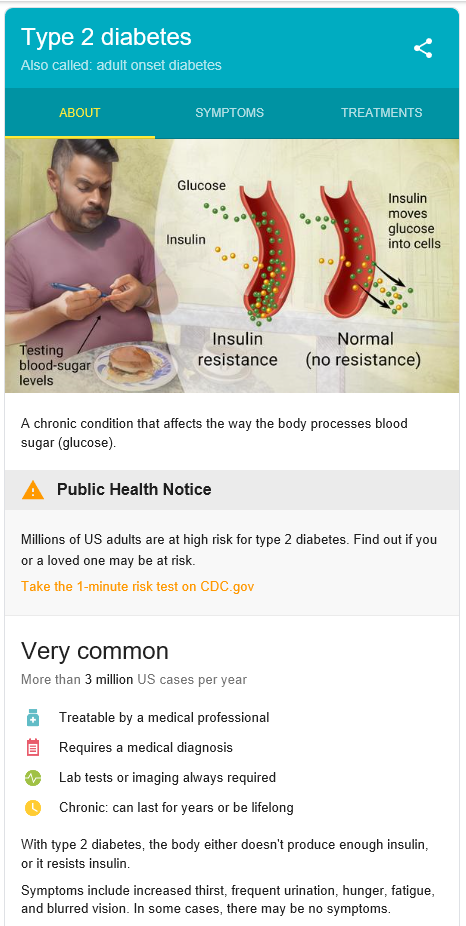Diabetes Health Card Increases Risk Awareness
Highlights
- Changing behavior requires reaching people at the right time.
- Searchable CDC health cards use behavioral insights to promote behavioral change.
- The card increased traffic and engagement for the diabetes risk test.
Changing behavior requires reaching people at the right time: when they are open to making a change. One indication of that willingness in the diabetes context is if they are searching for diabetes-related information online. The challenge is how to take that readiness for change to the next stage: increasing awareness of risk and actually altering lifestyles.
Abt and ideas42 are working with the Centers for Disease Control and Prevention to design, implement and evaluate behaviorally-optimized Prediabetes and Diabetes Health Cards. They appear when users search for terms such as prediabetes on a major search engine. The cards provide users a behavioral nudge to go to CDC landing pages, take an online risk test and seek information about the National Diabetes Prevention Program. Abt and ideas24 are evaluating the cards’ effectiveness in increasing user traffic to and engagement with CDC’s offerings.
Preliminary findings based on evaluation of CDC’s original landings pages and risk test noted sharp increases in risk test traffic and engagement since the implementation of health cards that use insights from the field of behavioral economics and behaviorally informed approaches. The evaluation used an interrupted time series design. Evaluations of the CDC landing pages and risk test are ongoing.
Examples of the health cards:


